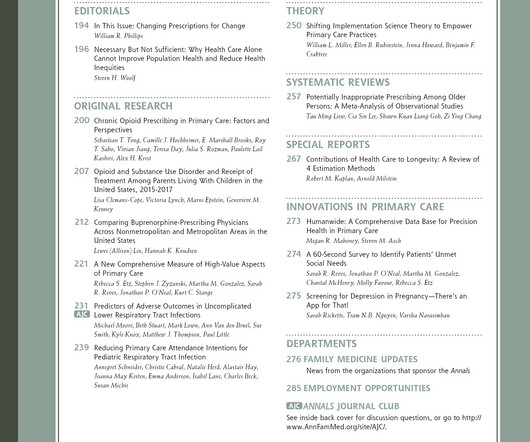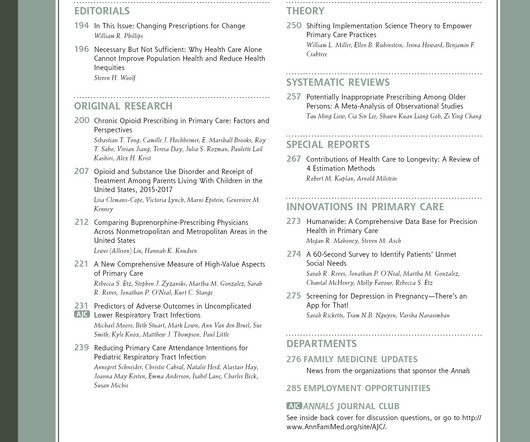Redesigning Primary Care Workflows to Optimize Obesity Management
Physician's Weekly
JUNE 17, 2025
The PATHWEIGH trial aims to embed structured obesity care into primary care, addressing barriers and boosting clinician confidence and patient outcomes. Barriers include time constraints, lack of training in obesity treatment, limited reimbursement, and the absence of structured care pathways.















Let's personalize your content